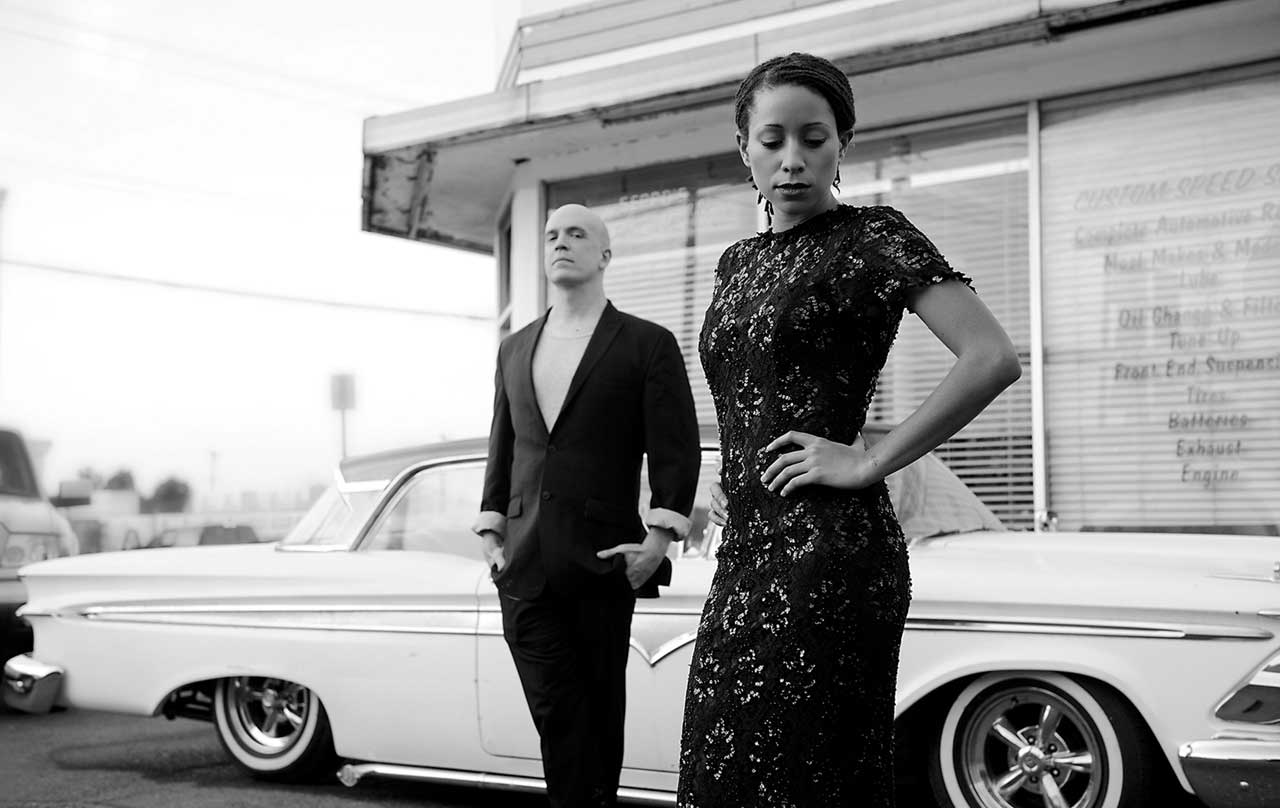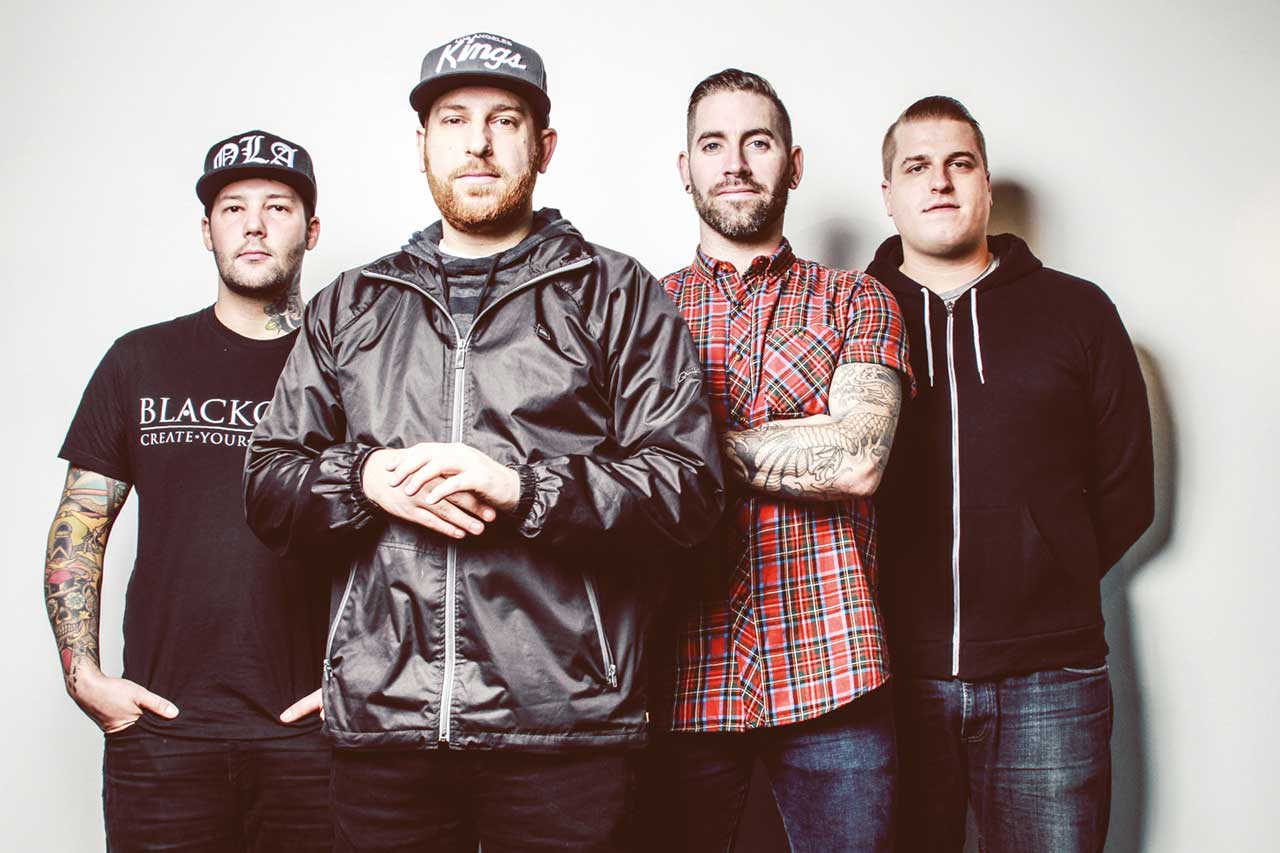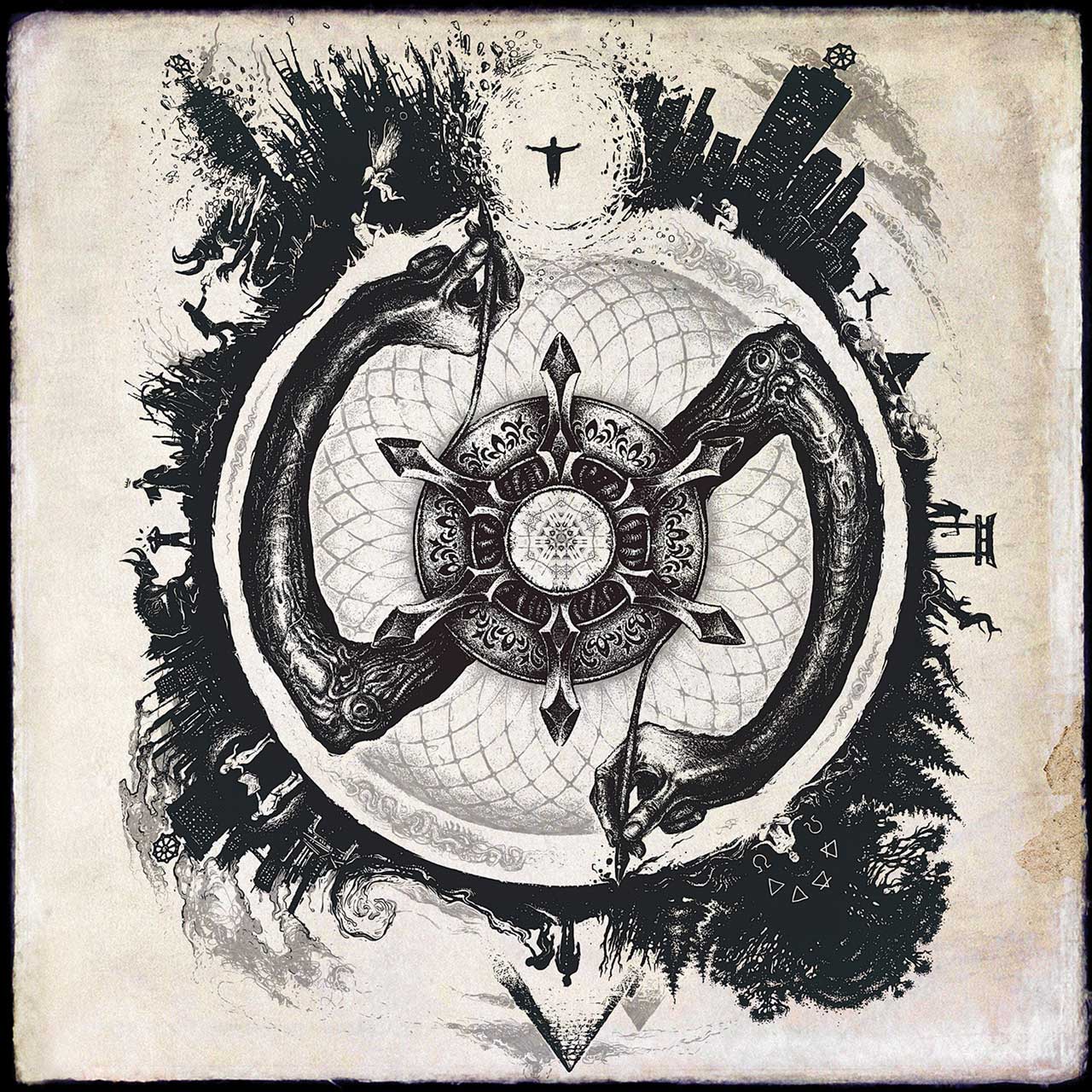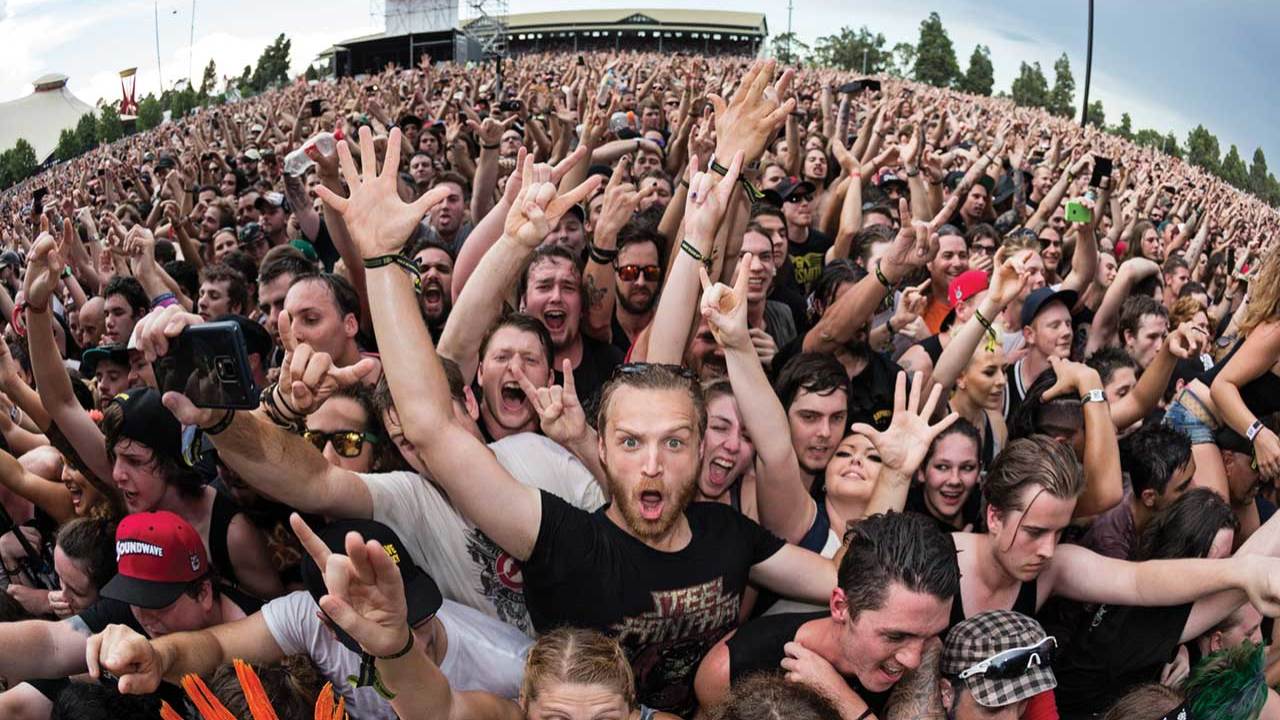As crowdfunding becomes increasingly popular, we look at the highs and lows of five campaigns in our world, from financing new music to saving bands’ careers…
The Album
Protest The Hero made the bold choice to leave their record labels in the US, Canada and the UK, and crowdfund their fourth album themselves. In January 2013, they launched an Indiegogo campaign and reached their original goal of $125,000 (£87,600) in less than a day, with the total eventually climbing to $341,000 (£241,000) – the platform’s second-biggest-ever campaign. The following July, they released Volition.“It’s exciting, because it’s like a ‘fuck you’ to the music industry,” guitarist Tim Millar laughs. “We were at the point where we were unsure if we’d made the right choice in continuing to pursue music. Reaching the goal in under 24 hours was astonishing; it was a huge reaffirmation that people like what we’re doing and want us to continue.”
Breaking free from the middlemen also allowed the Canadians to network with fans and promoters with ease. “We sold four $5,000 guest spots [on Volition],” says Tim. “One of the guys that came in was a professionally trained singer, so we got him to do all these high harmonies. And we have some shows in Japan this year that came about from an email to the band page. It’s nice that it’s so easy for people to get in touch with us.”
It’s a fuck you to the music industry
The success of Volition spurred them on to create a subscription platform, Pacific Myth, through Bandcamp. Fans pay a minimum of $12 and receive a new song a month for six months, as well as content such as pictures, lyrics, musical transcriptions and videos.

“That was more of an investment [than crowdfunding], because we have to record songs and videos, but there’s more of a return,” says Tim. “We’re finally capitalising on selling our music, which is something we’ve always been in the negative with when it comes to labels.”
Protest The Hero do maintain some ties to the traditional industry; UK label Spinefarm distributed Volition following the crowdfunding campaign. Meanwhile, the guys are so busy with writing and recording music, as well as managing their online platform, that they hired an independent publicist to help promote them. “We get a lot more from that as opposed to a label publicist who has 30 bands,” says Tim. “We’re not against working with labels, it just has to be in a fairer environment.”
Visit Protest The Hero’s Bandcamp
The Side-Project
After Devin Townsend successfully crowdfunded Casualties Of Cool, he spent many hours delivering quirky rewards to his fans
Devin Townsend admits that crowdfunding Casualties Of Cool, his country side-project, was hard work. He turned to PledgeMusic in 2014 when funds from his own pocket fell short of covering the costs. Though he successfully raised the money, he didn’t anticipate the weird world he was about to get caught up in while fulfilling the rewards.
“It got really bizarre towards the end,” laughs Devin. “I had to autograph 4,000 to 5,000 booklets, write personalised lyrics, sing Happy Birthday to people in various explicit ways, name people’s pets… We also offered a wooden box with some items in, but the manufacturer went bankrupt, so it took about a year for some of the people to get these boxes. People were rightfully pissed, and I remember thinking to myself: ‘How much of my need for money is worth it to be subjected to the criticism that comes with this new format, and the upset of people from my fanbase?’ But the silver lining is that we managed to fulfil everything.”
Devin admits he underestimated the impact of involving fans in the process, and it took some getting used to. “I think getting rid of the barriers is healthy, because there’s an element of rock’n’roll bullshit – the deifying of other people because they’re somehow better than you – that can’t die quick enough,” he says. “But when you go from sitting on your bed strumming a guitar to having thousands of people participating, it’s a wake-up call.”

Despite his bewilderment, Devin’s incredibly grateful for the interest in the campaign. It reached its goal within five hours, and went on to raise 544% of the amount required. “It’s overwhelmingly humbling that people were so generous towards it,” he says. The extra money raised funded the Z2 album and its accompanying videos featuring ugly-cute alien puppets. Oh, and he donated some leftover cash to three homeless animal shelters. What a guy.
Crowdfunding might seem like a quick and easy way for musicians with the right size fanbase to satisfy their ambitions, but as Devin found out, it takes as much effort, if not more, than working on something with label backing. Thankfully, Devin’s label Inside Out have always supported his endeavours, and even re-released Casualties Of Cool worldwide in January, along with a DVD of their intimate show at London’s Union Chapel. Devin hasn’t completely written off crowdfunding for more off-the-wall projects. “I want to do something with a symphony orchestra which will cost $400,000,” he laughs. “I also want to do a horror-slasher video with puppets to the Vengaboys song We Like To Party. My label said no, so never say never…”
Visit Devin Townsend’s official website
The Festival
When Soundwave was cancelled, Devil You Know’s John Sankey decided to try crowdfunding an alternative
Last December, Soundwave was called off due to poor ticket sales, after 11 years as Australia’s main alternative festival. John Sankey, the Aussie drummer of Devil You Know, was hugely disappointed, and decided to crowdfund a new festival: Legion. His campaign, which aims to raise $3,275,000 (£1,600,500) in three months, launched on January 4. John wanted to stage Legion in March to make up for Soundwave’s absence, but the festival’s cancellation left some bands out of pocket and hesitant to commit, and venues were struggling to obtain permits in time. Legion is now set for January 2017, with Devildriver and Darkest Hour on the bill, plus Devil You Know and Caligula’s Horse.
It could be a game-changer for festivals
John thinks the problem is down to the costs of running a festival, rather than a lack of interest: “Soundwave had so many massive bands – their artist cost would have been millions of dollars. But the demand is there, and by pledging [to Legion], you’re paying for your ticket. We want to focus on local bands, too, and many say they’ll do it on the cheap.”
Transparency is a priority for John. “We want people to know where every cent is going,” he explains. “And if the goal isn’t reached, no one gets charged.”
At the time of going to press, the campaign’s raised AU$353,040. If it continues at this rate, it’ll make less than a quarter of its target. “Worst case, people are left without a festival anyway,” says John.“I’d hate to see it end like that, but if it doesn’t happen we haven’t lost anything. It could really be a game-changer as to how shows are approached in the future.”
Visit Legion festival’s Pozible page
The Disaster
After The Ghost Inside’s horrific bus crash, friend Brian Storm started a fund to pay for their medical care
The Ghost Inside’s tour bus crash made international headlines. The drivers of both the tour bus and the vehicle it collided with tragically lost their lives, and the band were left in a critical condition – vocalist Jonathan Vigil fractured his neck and broke his ankles, while drummer Andrew Tkaczyk lost his right leg. Brian Storm, a rock blogger and close friend of touring guitarist Chris Davis, turned to crowdfunding, knowing their medical bills would be immense.

Brian set the initial target as $5,000, not knowing if he’d even reach that. “It was never going to be enough,” he says. “I had a sense that things were really bad. People in the music industry aren’t rich. I heard multiple band members had to be airlifted, and an airlift for one person averages $10,000.”
That $5,000 goal pales in comparison to the $150,000 that had been raised at the time of writing, and, knowing how expensive the specialist treatment and rehabilitation the band will need is, Brian’s grateful for every penny. The cause was given a boost when fellow bands heard about the campaign and threw their weight behind it.
“Bring Me The Horizon donated $10,000, which was an entire tour’s merchandise sales. I almost cried,” says Brian. “Architects also donated $1,000. There was a major uptake in contributions after those two bands made donations, and they deserve a lot of credit for getting the whole thing started.”
The speed at which the fund grew, and the readiness of bands and fans to donate, proves that in times of need, the rock world lives up to its reputation of being a true community. Brian says Chris is overwhelmed by the generosity, but that they’ve all got a long road to recovery.
Visit The Ghost Inside’s GoFundMe page
The Cash Crisis
After Soundwave imploded, Monuments were left owing funds to friends and family, and reluctantly turned to their fans for help
Not all crowdfunding campaigns exist to bring ideas to fruition. Sometimes, they’re a last-ditch attempt to rescue the fundraiser from a less-than-ideal situation. When Monuments found themselves out of pocket when Soundwave was cancelled, they decided to appeal to the generosity of fans. After playing Soundwave last year, the band claim they received a portion of the wage upfront, but are still waiting for the rest of what they’re owed. They haven’t disclosed the outstanding fee, but are aiming to raise £14,000 through crowdfunding to cover their debts.
“We borrowed all the money to go to Australia, that’s the problem,” explains guitarist John Browne. “We owe [guitarist] Olly’s dad a lot of money.” For a band whose members still work day jobs ranging from bar shifts and painting and decorating to teaching guitar lessons, hopping over to Oz to play Soundwave 2015 wasn’t cheap. They all took time from their jobs to travel there, which left their kitty depleted, and crowdfunding looking like the only option.
We owe our guitarist’s dad a lot of money
“In the past, we’ve been a bit against crowdfunding,” says John. “There are certain times you have to ask for money, and I’m not sure if this is the right time. But the moment [the cancellation of Soundwave 2016] was announced, our manager Allen was straight on it. He said, ‘Right, that’s it, we’ll have to crowdfund’.”
John points out that if every one of Monuments’ 150,000 Facebook fans donated the piddly sum of 10p, they’d meet their goal. Even so, he says fan reactions have been “a mixture of positive and negative. Some people just don’t get it.” John’s unease with going cap-in-hand to his fans is obvious; he sounds almost embarrassed to be doing it.

Even so, it appears to be working. The funds are creeping up slower than campaigns with a tangible end-goal like an album, but they’ve managed to amass just over £5,500 in two months. Perks, like guitar lessons with either John or Olly, and original hand-drawn artwork from their last record, The Amanuensis, have been added to give fans an extra incentive to donate.
John’s experience with crowdfunding might not have been 100% positive, but he thinks it can be a valuable tool when it’s used to finance musical projects. So, would he consider it again if the end goal was, say, an album? “I feel like you’ve only got one opportunity for this sort of thing,” he muses. “It would look weird if we asked for money more than once.”
John’s desire to tour and perform hasn’t been dampened, though. “We’ve done two US tours before that went really well,” he says, and also reveals that he’s started writing a new record. Monuments may need a little help from their friends, but they’re determined to get back to business.
Visit Monuments’ GoFundMe page
